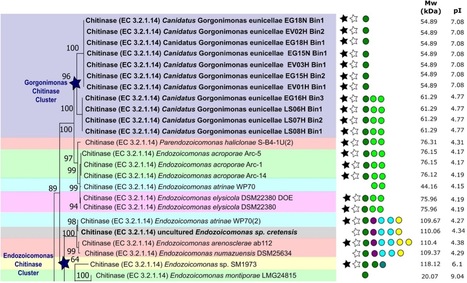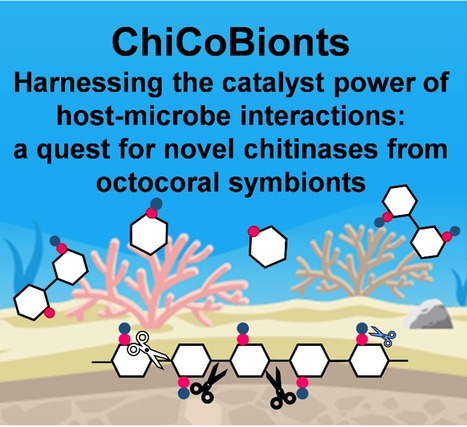
Chitin is the most abundant natural polymer in the oceans, where it is primarily recycled by chitin-degrading microorganisms. Bacteria of the family Endozoicomonadaceae are prominent symbionts of sessile marine animals, particularly corals, contributing to nutrient cycling in their hosts. A new comparative genomics study, published in ISME Communications, found a widespread occurrence of chitinases, and other genes involved in chitin degradation in cultured and uncultured Endozoicomonadaceae lineages associated with diverse marine animals. The presence of multiple, distinct chitinases on the genomes of several Endozoicomonadaceae species hints at functional variation to secure effective chitin processing in diverse micro-habitats and changing environmental conditions. This study concludes that Endozoicomonadaceae symbionts likely play important roles in chitin turnover in filter- and suspension-feeding animals and in benthic, marine ecosystems at large. The work was developed by MSc students Daniela Silva and Filipa Pedrosa in the framework of the ChiCoBionts project led by iBB/DBE researcher Tina Keller-Costa with valuable contributions from professors Ângela Taipa and Rodrigo Costa.



 Your new post is loading...
Your new post is loading...






